 Search
Search
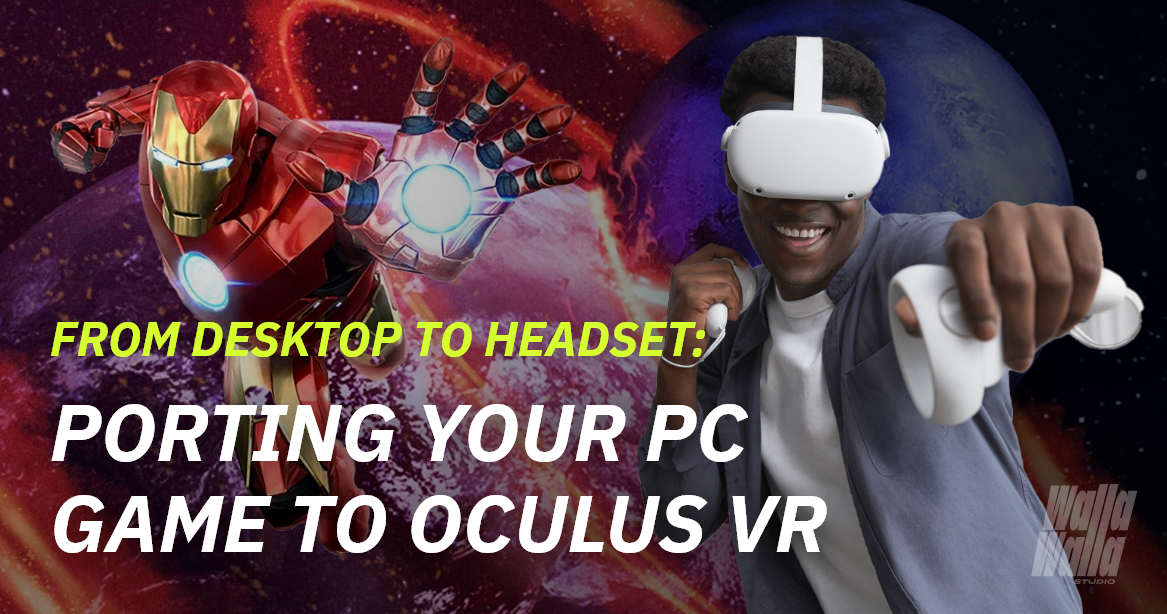
The world of gaming is undergoing an exciting transformation, with virtual reality (VR) leading the charge as a groundbreaking frontier. One of the pioneering forces in VR gaming is Oculus, a company known for its immersive headsets, including the standalone Quest and the high-end Rift S.
For game developers, the opportunity to bring their successful PC titles to Oculus is a thrilling prospect. It opens doors to a wider audience and allows players to dive into entirely new gaming experiences. However, this journey is far from straightforward and presents its unique set of challenges.
In this informative guide, Walla Walla Studio as a game porting expert will take you on a journey through the intricacies of porting a PC game to Oculus. We’ll explore the exciting but challenging path that developers must navigate, covering topics like optimizing performance, adapting user interfaces, creating captivating graphics, and ensuring player comfort. By the end of this guide, you’ll have a clear understanding of the complex process of successfully porting your PC game to the world of Oculus.
The Promise of Oculus: Why Porting to VR Matters
The gaming industry’s virtual reality sector is poised for significant growth, with a projected Compound Annual Growth Rate (CAGR) of 32.75% in the foreseeable future.
VR technology has garnered widespread attention and adoption in recent years, thanks to notable technological advancements. This progress has paved the way for a multitude of new entrants in the market, all aiming to propel VR into mainstream adoption within the gaming industry.
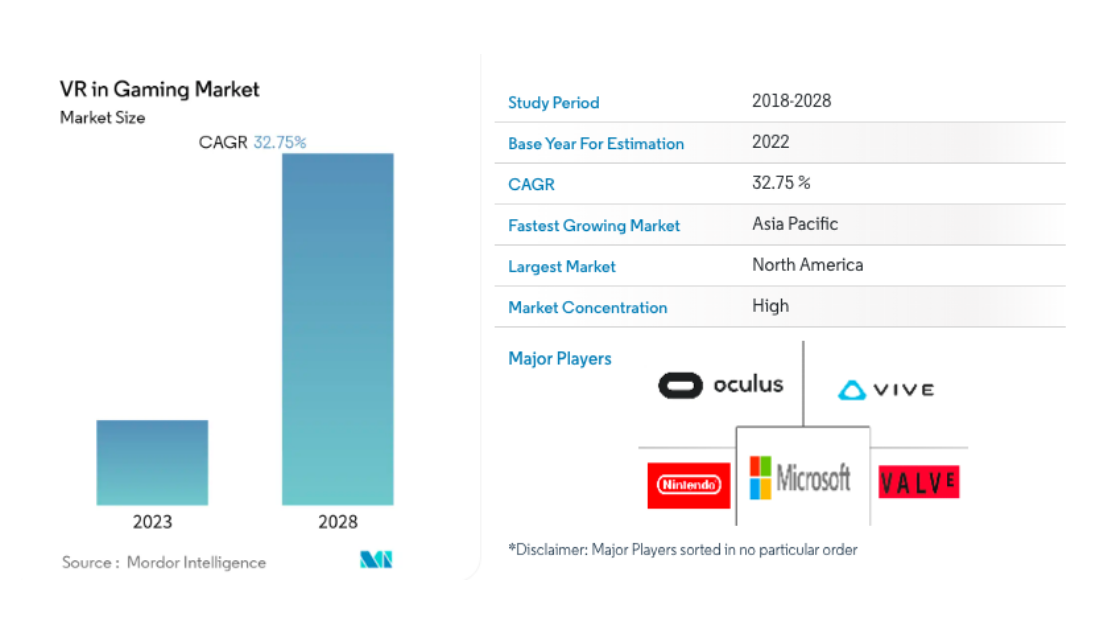
According to insights from NewGenApps, it is anticipated that by 2025, the global user base for augmented reality (AR) and VR games will expand to 216 million users.
Additionally, as reported by 3Dinsider, a substantial 64% of active VR users believe that the gaming sector holds the greatest potential for reaping the benefits of ongoing advancements in VR technology. This collective enthusiasm underscores the promising future of VR gaming and its pivotal role in shaping the gaming industry’s landscape.

Mordor Intelligence – Global Virtual Reality In Gaming Market Size & Share Analysis – Growth Trends & Forecasts (2023 – 2028)
As the key VR platform, Oculus (Meta) gives your title access to the largest audience in the VR game market. Therefore, adapting a PC game for Oculus emerges as an enticing approach for game developers seeking to enhance their revenue from an existing title without the necessity of seeking investments or taking on the risks associated with launching an entirely new game in the market.
How to Succeed in Porting to Oculus?
Porting a PC game to Oculus is a multifaceted process, and each step presents its unique challenges. Here are some of the major issues we’d like to draw your attention to before you make a solution for porting.
Our experience in game porting to VR allows us to find a solution to any challenge, so we’ve not only defined the hard points of porting to Oculus but also offered you proper solutions to each issue below.
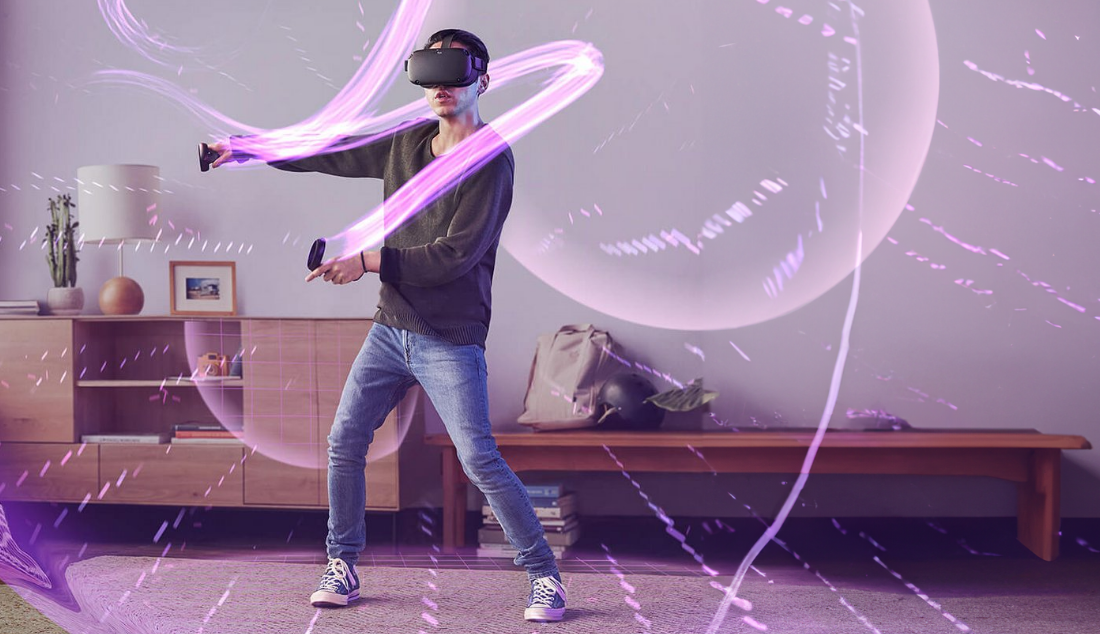
1. Performance Optimization
Challenge: Oculus demands a high level of performance to ensure a smooth and comfortable gaming experience. Maintaining a consistent high frame rate, often at 90Hz or higher, is crucial to avoid motion sickness and discomfort.
Solution: You must re-optimize graphics, assets, and game mechanics to meet Oculus’ stringent performance guidelines. This may involve simplifying complex geometry, optimizing shaders, and implementing efficient rendering techniques.
2. User Interface (UI) and Controls
Challenge: PC games typically have different UIs and control schemes compared to VR. Adapting these elements for Oculus is challenging, as players need intuitive and immersive interactions.
Solution: You need to redesign UI elements to be more VR-friendly, often using 3D menus and interfaces. Implementing Oculus Touch controllers or other VR input devices requires careful consideration for intuitive and responsive controls.
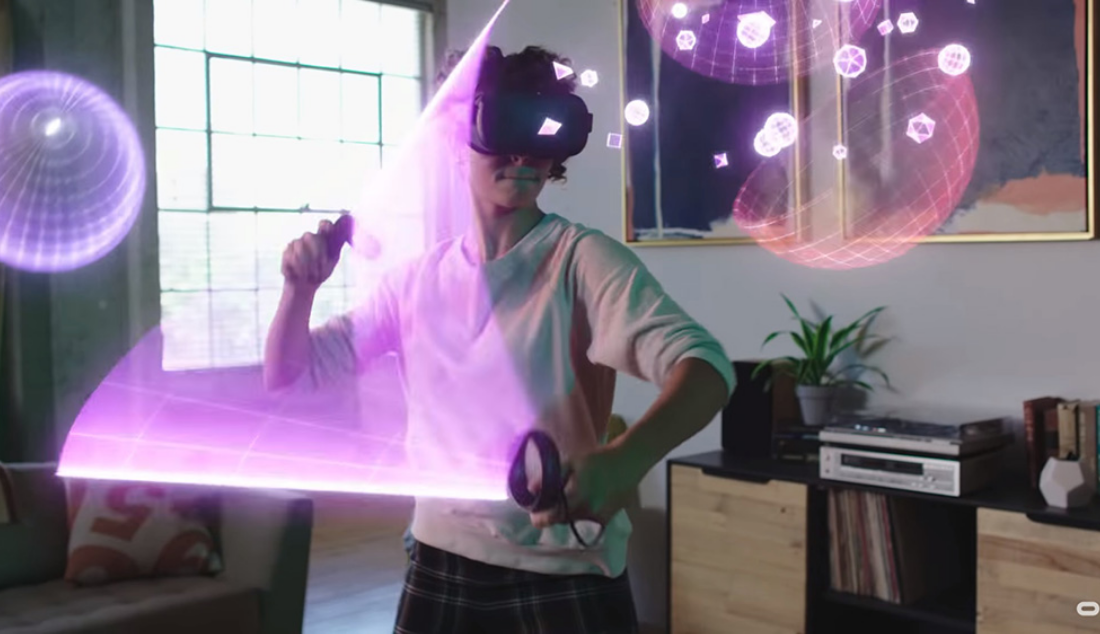
3. Graphics & Art Assets
Challenge: Oculus demands high-quality 3D assets and environments to maintain immersion. Many PC game assets may need significant upgrades to meet these standards.
Solution: Artists and designers must revisit and rework existing assets to make them suitable for VR. This may involve improving textures, creating detailed 3D models, and enhancing animations.
4. Motion Sickness Mitigation
Challenge: VR-induced motion sickness is a significant concern. Designing gameplay that minimizes discomfort is essential, especially for players new to VR.
Solution: We recommend implementing comfort features such as teleportation, snap turning, and smooth locomotion options. Playtesting and iterative design are crucial to finding the right balance between immersion and comfort.
5. Scale and Perspective
Challenge: PC games are often designed with specific screen dimensions in mind. In VR, players can explore environments in 360 degrees, which may require adjustments to scale and perspective.
Solution: You need to reassess level design, character proportions, and environmental scaling to ensure they make sense in VR. What looks good on a flat screen may not translate well to a VR headset.
6. User Experience (UX)
Challenge: Crafting a satisfying and immersive user experience in VR goes beyond the game itself. Navigating menus, tutorials, and onboarding sequences must all be adapted for Oculus.
Solution: Pay attention to UX design, ensuring that players can comfortably navigate menus, understand controls, and receive clear instructions within the VR environment. It’s essential to guide players seamlessly into the VR world.
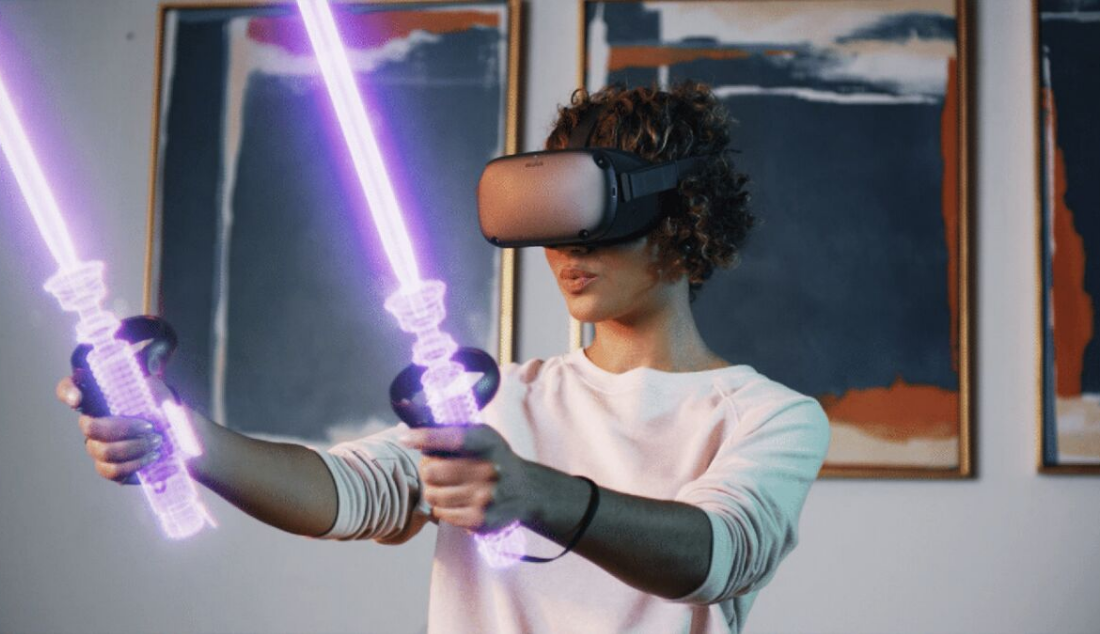
7. Testing and Quality Assurance
Challenge: Rigorous testing is essential to identify and fix issues related to performance, comfort, and functionality. Testing in VR is more complex and time-consuming than traditional PC testing.
Solution: Establish a robust testing process that involves VR equipment, focusing on performance, comfort, and overall user experience. Addressing bugs and issues promptly is crucial for a polished final product.
8. Hardware Compatibility
Challenge: Oculus offers a range of devices, from the standalone Quest to high-end PC-connected headsets. Ensuring compatibility across various Oculus devices and configurations can be challenging.
Solution: Test your Oculus port on different devices and tailor performance settings and features accordingly. Scalability is key to reaching a broader audience.
9. Legal and Licensing Considerations
Challenge: Porting a PC game to Oculus may involve legal and licensing issues, especially if the game uses third-party assets or technologies that are not compatible with VR.
Solution: You need to carefully review licensing agreements and seek legal advice when necessary. It’s crucial to ensure that all rights and permissions are in place for the VR adaptation.
10. Market Demand and Audience Expectations
Challenge: Assessing the market demand for a VR port is essential. Not all games are suitable for VR, and developers must gauge whether the effort justifies the potential return on investment.
Solution: It’s important to conduct market research and gather feedback from potential players to understand their expectations for a VR version. Consider whether the game’s mechanics and narrative lend themselves well to the VR experience.
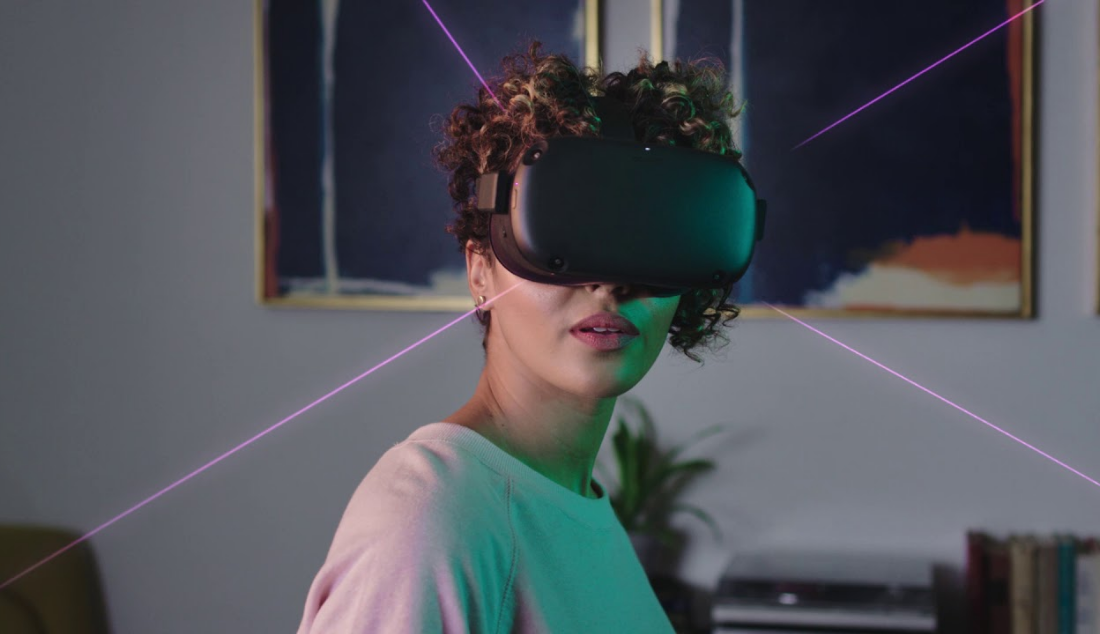
What If You Have No Experience in Porting to Oculos?
Trying to gain your first experience in porting with your game development team may bring more questions than answers. So for a high-quality effective result, it’s reasonable to outsource this part of the work to the professionals.
Experienced studios possess an extensive understanding of the intricacies involved in VR game development, particularly the unique requirements and challenges posed by Oculus platforms.
By collaborating with Walla Walla Studio, you can tap into a wealth of knowledge, proven methodologies, and optimized workflows. This not only accelerates the porting process but also reduces the likelihood of costly errors and delays that often accompany learning curves.
Furthermore, it allows in-house teams to focus on their core strengths and creative endeavors, ensuring that the final VR adaptation achieves the highest standards of quality, performance, and player satisfaction. Ultimately, outsourcing to an experienced game porting partner streamlines the transition to Oculus, minimizing risks and maximizing the potential for a successful VR gaming experience.
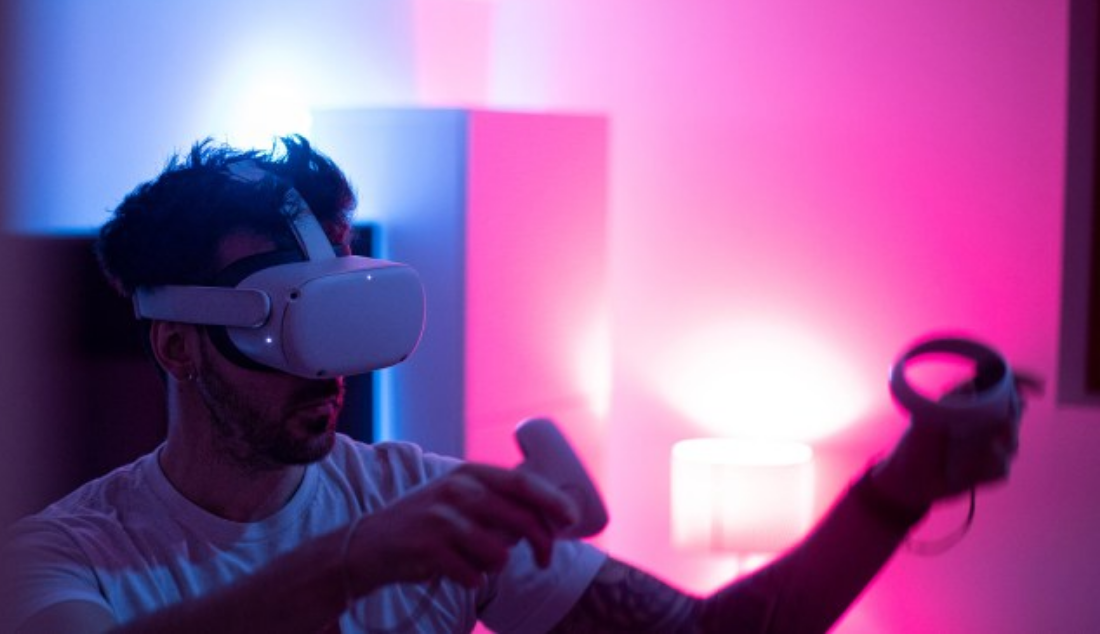
How to Port to VR with Walla Walla Studio?
Porting your title to Oculus with Walla Walla Studio is a seamless and efficient process that leverages our extensive expertise in VR game development. Our proven methodology ensures a successful transition to VR platforms. Here’s how we make it happen.
1. Initial Consultation
We start with an in-depth consultation to understand your game, its mechanics, and your objectives for the VR adaptation. This helps us tailor our approach to meet your specific needs.
2. Assessment and Feasibility
Our experienced team assesses the feasibility of porting your game to VR. We analyze factors such as gameplay mechanics, art assets, and performance requirements to determine the best approach.
3. Design and Planning
Once we’ve established the feasibility, we create a detailed design and development plan. This includes VR-friendly UI/UX design, control schemes, and optimization strategies to ensure an immersive experience.
4. Development
Our skilled developers and artists work on adapting your game to VR. This involves optimizing assets, implementing VR-specific features, and fine-tuning performance to meet the demands of Oculus platforms.
5. Testing and QA
Rigorous testing is a cornerstone of our process. We conduct thorough QA testing to identify and resolve any issues related to performance, comfort, and functionality. This ensures a polished and bug-free VR experience.
6. Iterative Feedback
We value your input throughout the process. We provide regular updates and gather your feedback to make necessary adjustments, ensuring the VR adaptation aligns with your vision.
7. Optimization
Performance optimization is crucial in VR. We employ cutting-edge techniques to ensure your game runs smoothly and comfortably on Oculus headsets.
8. Launch and Support
Once your VR title is ready, we assist with the launch process, including submission to Oculus platforms. We also provide ongoing support and updates to maintain the quality and performance of your VR game.
9. Post-Launch Analysis
We don’t stop at launch. We analyze user feedback and data to make continuous improvements, ensuring your VR title remains engaging and successful.
By choosing Walla Walla Studio as your VR porting partner, you benefit from our experience, expertise, and dedication to delivering a top-notch VR gaming experience. We’re committed to making your game shine in the world of Oculus VR.


